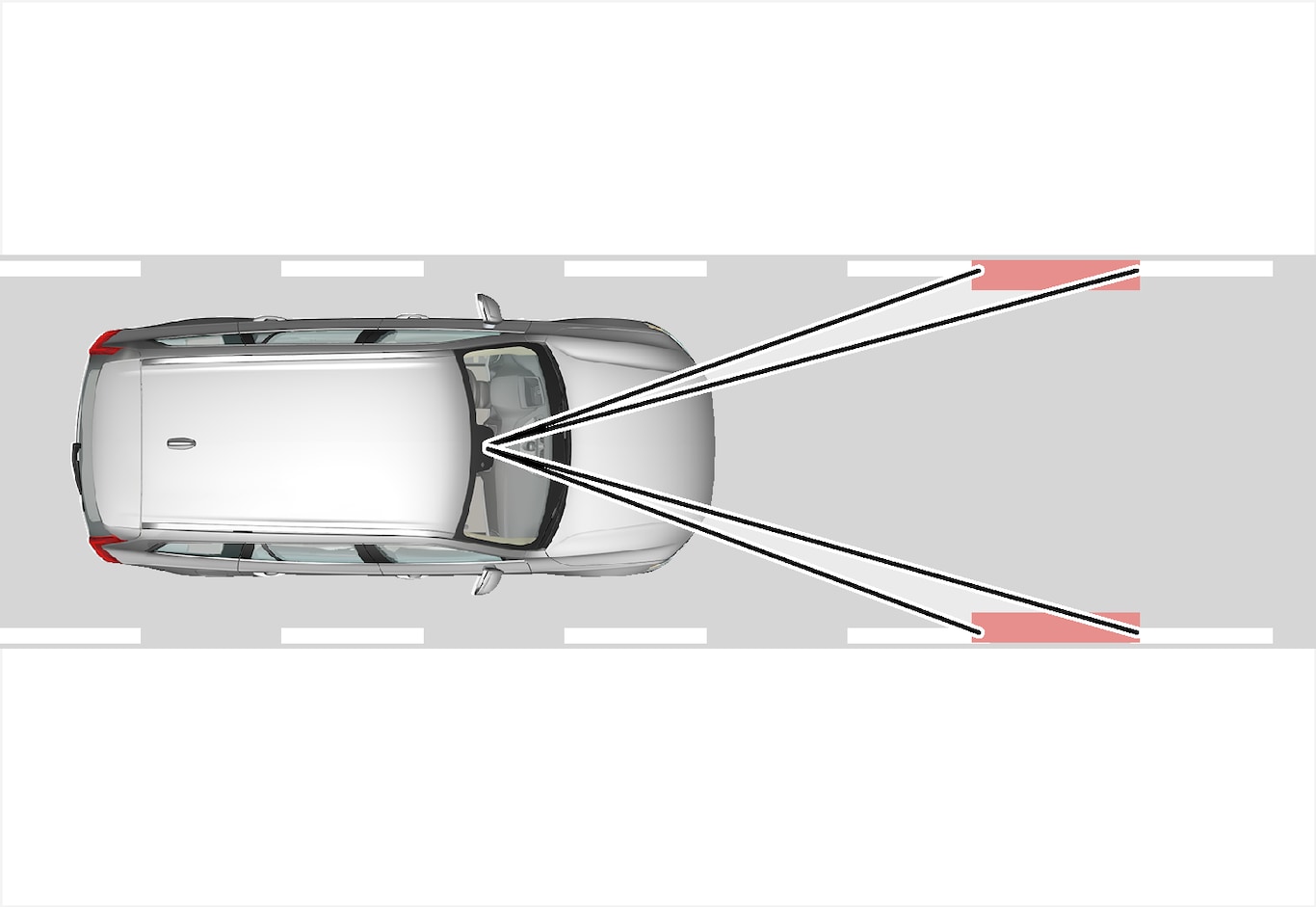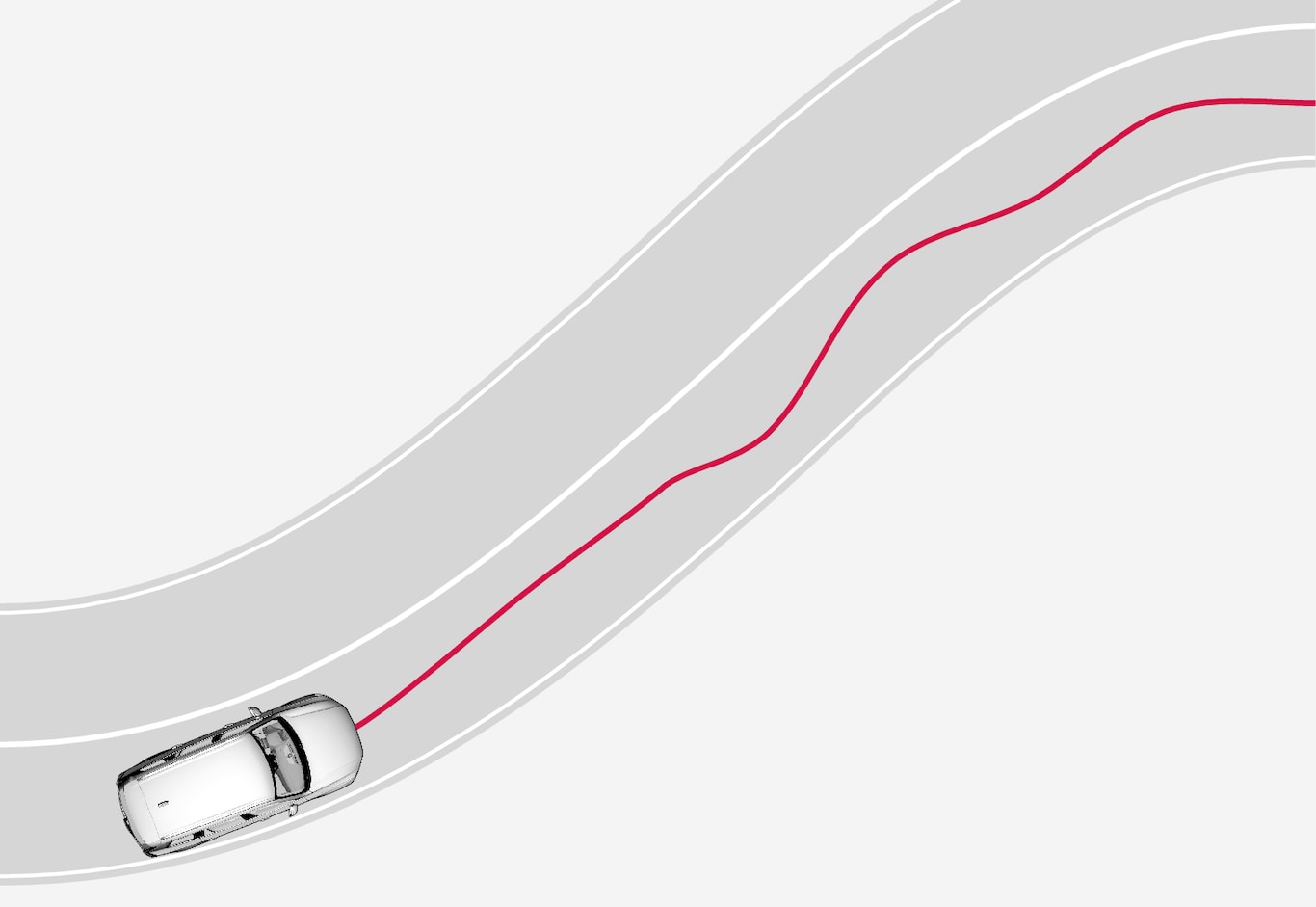Driver Alert
The objective for the function is to detect slowly deteriorating driving ability and it is primarily intended for major roads. The function is not intended for city traffic.
The function is activated when speed exceeds 65 km/h (40 mph) and remains active as long as the speed is over 60 km/h (37 mph).

A camera detects the edge markings painted on the carriageway and compares the alignment of the road with the driver’s steering wheel movements.


If driving behaviour becomes noticeably inconsistent, the driver is alerted by this symbol in the driver display, combined with an acoustic signal and the text message Time for a break Driver Alert.
The warning is repeated after a time if driving behaviour has not improved.
Warning
Warning
An alarm from Driver Alert should be taken very seriously, as a sleepy driver is often not aware of his/her own condition.
- Stop the car safely as soon as possible and rest.
Studies have shown that it is just as dangerous to drive while tired as it is to drive under the influence of alcohol or other stimulants.
Warning
- The function is supplementary driver support intended to facilitate driving and make it safer – it cannot handle all situations in all traffic, weather and road conditions.
- The driver is advised to read all sections in the Owner's Manual that relate to this function to learn about factors such as its limitations and what the driver should be aware of before using the system.
- Driver support functions are not a substitute for the driver's attention and judgement. The driver is always responsible for ensuring the car is driven in a safe manner, at the appropriate speed, with an appropriate distance to other vehicles, and in accordance with current traffic rules and regulations.